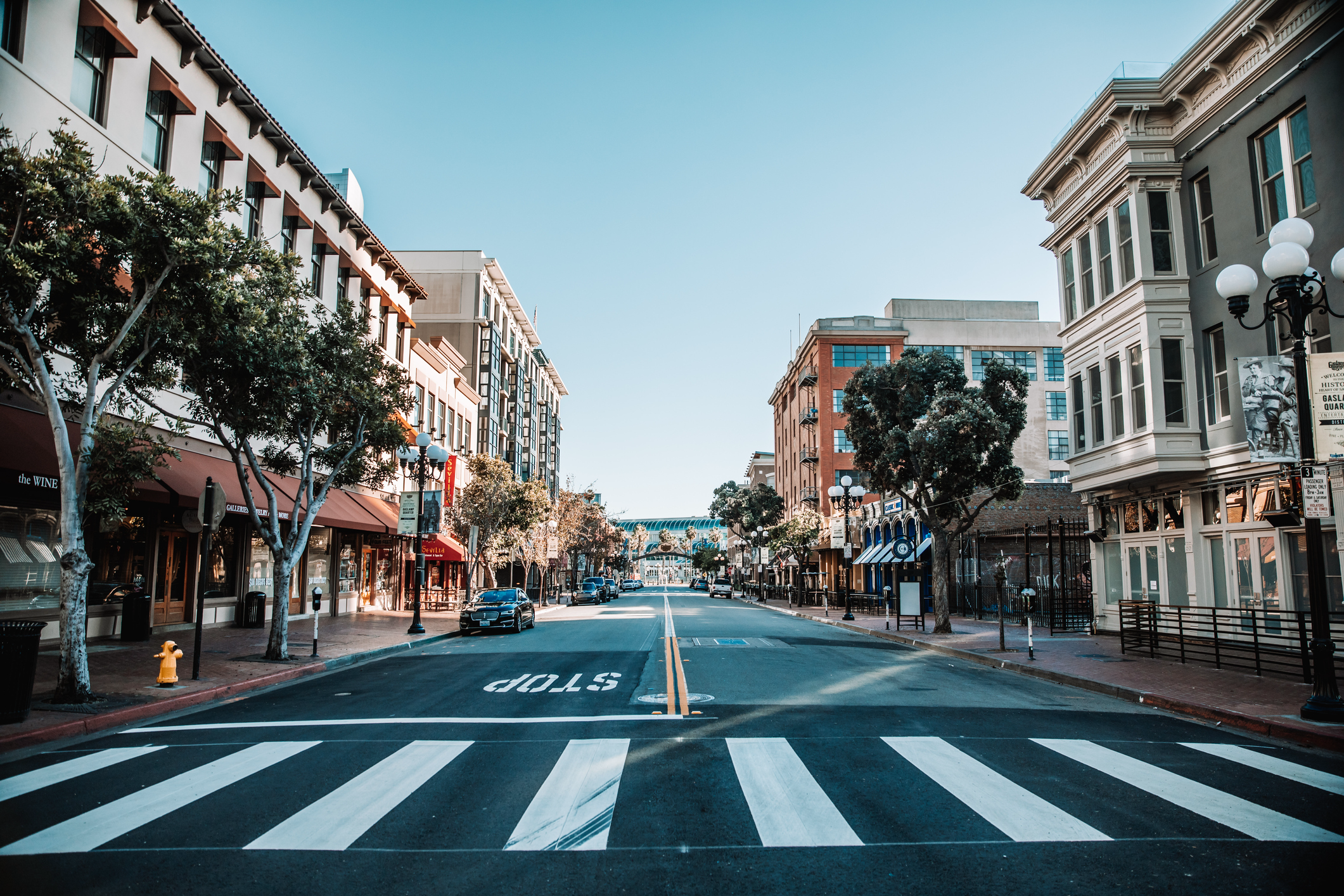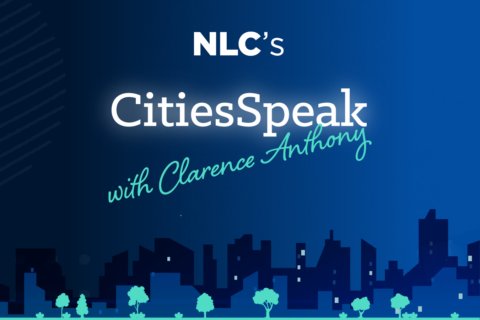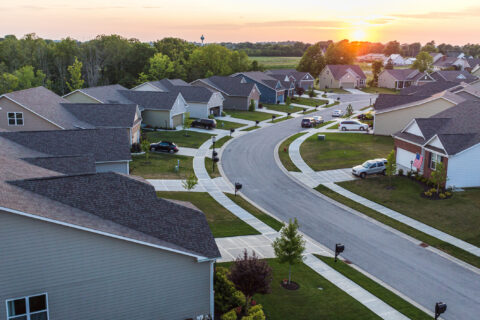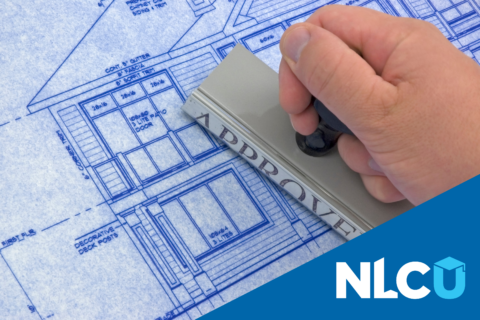By United States Interagency Council on Homelessness Executive Director Jeff Olivet
When the work of homelessness makes you feel hopeless, don’t give up, and don’t give in to calls for harsh action that punishes people who have nowhere else to go. Pause. Then use the failure of our systems as fuel to power your fight against homelessness.
Homelessness is preventable and solvable. I regularly visit cities and towns that are successfully helping people stay in their homes or move into new homes after living without one. But progress can be slow—and that progress is often slower when we react too quickly. Mayors, local officials and city leaders in every department have long been under pressure to do something, anything—and the recent rise in homelessness has intensified that pressure. With severe shortages of affordable housing, rents rising faster than wages, and a pandemic that worsened the health outcomes or so many, communities are understandably struggling with how to help.
One reaction is to pass laws that make it illegal for people to lie down, sleep or camp in public spaces. Yet criminalizing homelessness simply shuffles people between streets and jails when their only true offense is not making rent. This worsens rather than solves the problem. Real change can take time—especially when decades-old systems are what need to change. To solve homelessness, we must fix systems that contribute—not blame people failed by them.
Housing is the fundamental solution to homelessness. We must increase the number of homes in this country and make them more affordable. When full-time minimum wage workers—many of whom are working while homeless—can’t afford rent in any county in the country, the system is broken.
But housing alone is not enough. We must make wraparound services accessible to everyone who needs them. It is these supports—like medical and mental health care, substance use treatment, childcare, transportation, and support to recover from traumatic events—that can help people stay housed. We also have to go upstream.
We must stop releasing patients from hospitals and kids from foster care when they have no home to go to.
We must acknowledge that racism is alive and well in this nation, driving high rates of homelessness for people of color. We must design more equitable policies and institutions.
Homelessness is a policy choice. Our nation’s response to COVID-19 demonstrated that. During the height of the pandemic, the nation came together and chose to invest more in housing, health care, and income supports to prevent people from losing homes. The 2021 American Rescue Plan Act provided the single-largest investment in addressing homelessness in American history. Cities used that money to build more affordable housing, convert vacant hotels and motels into shelters where people could socially distance, create emergency rental assistance and eviction prevention systems and provide the first housing voucher for people experiencing homelessness. More than 100 cities joined the federal House America Initiative to end homelessness for more than 100,000 people and create more than 40,000 affordable homes. These collective efforts helped halt the post-2016 rise in homelessness and prevented another rise between 2020 and 2022.
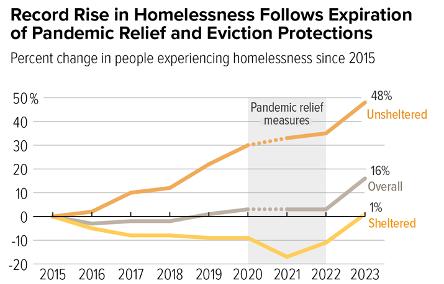
This showed that progress is possible even in difficult times. Unfortunately, now that most of the pandemic resources have expired, we’re reminded of what happens when we don’t invest enough in what works: housing and support.
In December 2022, the U.S. Interagency Council on Homelessness released All In: The Federal Strategy to Prevent and End Homelessness. Since then, the Biden-Harris administration has taken major, unprecedented action to address homelessness head-on. In 2023:
- We put the nation on a path to build more apartments than any other on record, thanks in large part to the White House’s Housing Supply Action Plan.
- We invested nearly half a billion dollars to help people living on city streets and people experiencing “hidden homelessness” in rural America.
- We launched the ALL INside Initiative to work closely with designated cities to cut red tape that makes it hard for people to move off streets and into homes.
- We made it possible for more states to use Medicaid to pay for housing and support (including mental health and substance use treatment), and we made it easier for health providers to treat people where they are—shelters and encampments.
- We helped more than 424,000 exit or avoid homelessness, and we surpassed our goal to rehouse more than 38,000 veterans.
- We released the first federal homelessness research agenda in more than a decade and The White House Blueprint for a Renters Bill of Rights.
In the coming year, we will build on our work to expand housing, break down barriers, and help even more people escape homelessness.
Even when more tents appear, we know it doesn’t mean that communities aren’t helping people. Data show that for every person who moves off the street and into a home, more than one becomes homeless. That’s why preventing homelessness is a priority for the federal government. In the last three years, we showed the promise of eviction prevention resources, providing more rental assistance than in the previous 20 years. Last year, we deepened our work to help communities build better systems to prevent homelessness—especially among youth. This year, we are exploring public-private partnerships to prevent homelessness from occurring in the first place.
There is so much more work to be done—and we can’t do it without you. Cities and towns, and the people who lead them, are critical to solving homelessness nationally. You have the power to update local land-use and zoning policies, making it easier and faster to build or convert housing connected to the needs of your residents. You have the power to protect renters and incentivize landlords to accept people using vouchers. You have the power to make sure no one ends up in jail simply because they can’t afford rent. We need you, your mayors, city councilors, municipal employees, landlords, developers, and others to make the choice to effectively and humanely respond to homelessness.
Like air, water and food, housing is a basic human need required for the health of individuals and communities. Until housing is available to all, don’t give up.
